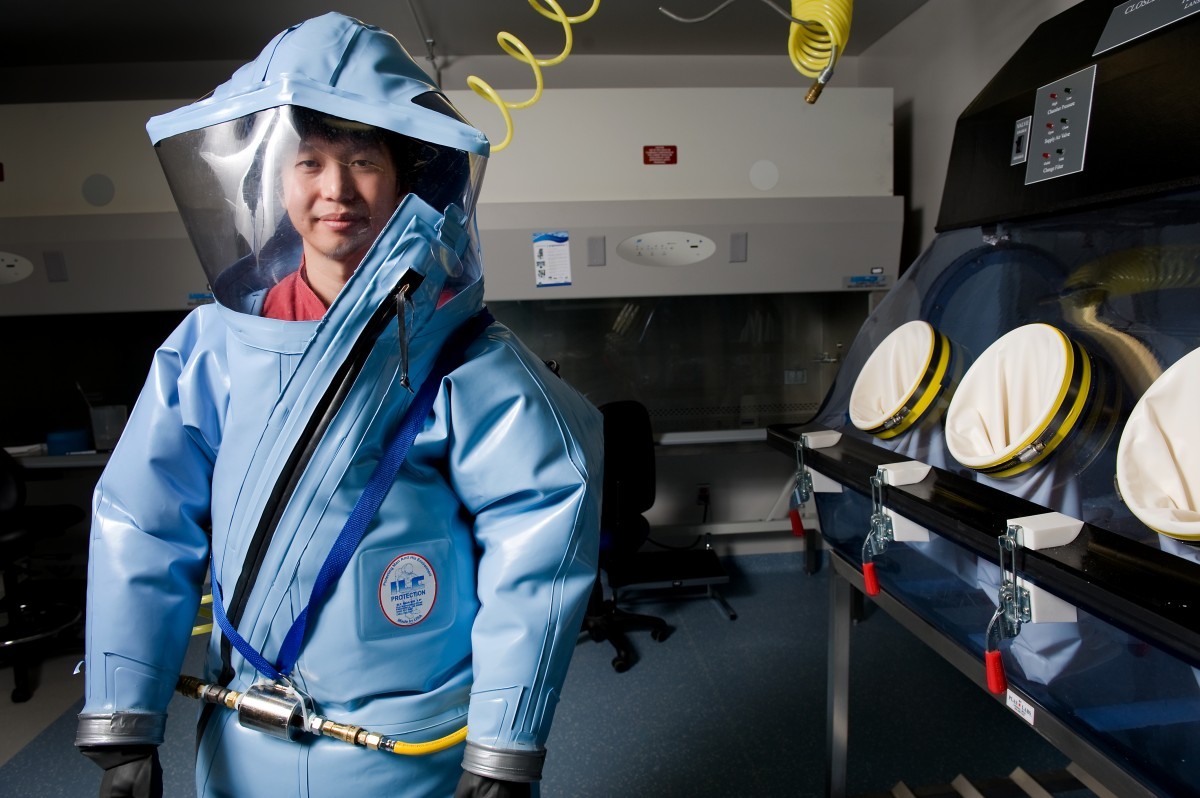
Top research discoveries of 2015
The University of Manitoba has been at the centre of many discoveries for more than a century. From the development of canola and advances in wireless communication, to breakthrough research concerning the transmission of HIV/AIDS, its researchers have made contributions that have had a global impact.
In 2015 U of M faculty and students continue to earn international acclaim in fields as diverse as infectious diseases, Canadian history, materials science, civil infrastructure, population and community health and sustainability. Below is a list of some of research-related stories to be proud of.
Advancing the fight against Ebola
Dr. Gary Kobinger and his team of 15 U of M researchers working at the Public Health Agency of Canada’s National Microbiology Laboratory (NML) found a treatment for people already infected with Ebola. Graduate student Gary Wong also played a key role in the effort to curb the spread of the disease.
Ice and Oil
Drilling in the Arctic will happen. The University of Manitoba’s $32 million Churchill Marine Observatory will help ensure it happens responsibly.
What is the cost of smoking in Manitoba?
A study from the U of M’s Centre for Health Policy says cigarette smoking costs Manitoba’s publicly-funded health care system an extra $244 million a year.
Heart cell protein study provides clue to cancer’s “Achilles’ heel”
Lorrie Kirshenbaum’s research identified variants of a protein found in both cancer and heart cells. This finding, published in the prestigious Journal of Cell Biology, is seen as a key to finding an effective therapy in killing cancer cells.
Research raises alarm on antibiotic use during pregnancy
New research from the U of M’s Jean-Eric Ghia shows antibiotic treatment during pregnancy may increase susceptibility to inflammatory bowel disease in newborns.
Program science approach useful in combatting a range of health and social issues
Too many of the world’s poorest and most marginalized populations are not benefiting from the modern technologies and medical innovations designed to improve human health. Dr. James Blanchard, is using science to change that.
New research may lead to vaccine for parasitic disease
The fight against a pervasive and potentially deadly disease that affects millions around the world saw an incredible breakthrough thanks to Dr. Jude Uzonna.
Study: How infant’s gut bacteria can predict future food allergies or asthma
A joint study from researchers at the University of Manitoba and the University of Alberta is shedding new light on changes in intestinal bacteria of infants that can predict future development of food allergies or asthma. It found that infants with a fewer number of different bacteria in their gut are more likely to become sensitized to foods such as milk, egg or peanuts.
Exploring the unknown
Bruce Ford, a professor in the department of biological sciences in the Faculty of Science, believes he has discovered the centre of origin of the world’s largest flowering plant genus, and he’s out to prove it on a National Geographic-supported expedition to Vietnam.
It’s still brain surgery, but it’s been made slightly easier
Made-in-Manitoba technology gives surgeons the ability to destroy previously inoperable tumours deep inside the brain. The innovation comes from two U of M alumni, Dr. Mark Torchia [PhD/01] and Richard Tyc [MSc/94].
Research at the University of Manitoba is partially supported by funding from the Government of Canada Research Support Fund.






